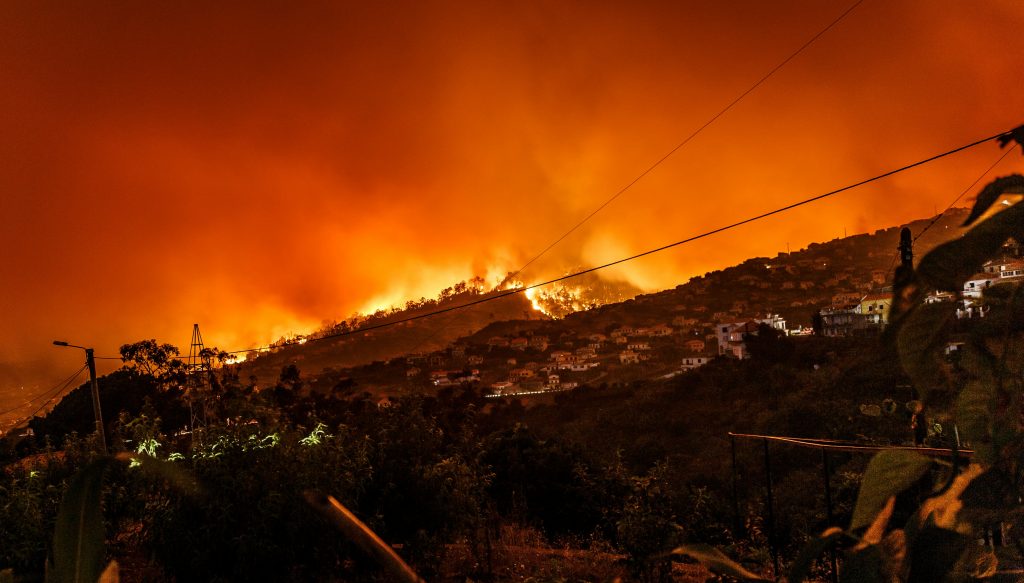University of Leicester scientists reveal how climate change is fuelling record-breaking wildfires across the Americas

A major new international report has found that wildfires across South America and Southern California were up to 30 times larger due to human-driven climate change — with scientists from the University of Leicester and Space Park Leicester playing a key role in uncovering the evidence behind this alarming trend.
The State of Wildfires 2025 report – led by experts from the UK Centre for Ecology & Hydrology (UKCEH), Met Office, National Centre for Earth Observation (NCEO), University of East Anglia, and the European Centre for Medium-Range Weather Forecasts (ECMWF) – highlights how global warming is intensifying fire seasons, destroying ecosystems, displacing communities and releasing billions of tonnes of carbon into the atmosphere.
Leicester science at the forefront of global wildfire research
Among the report’s co-authors is Dr Zhongwei Liu, a scientist with the National Centre for Earth Observation (NCEO), based at the University of Leicester and Space Park Leicester. Dr Liu and her team led the analysis linking extreme fire weather conditions to climate change across four major wildfire events in 2024–25.
“Our findings show that climate change has already increased the likelihood of extreme wildfire events across all the regions studied,” said Dr Liu.
“We are seeing how human-driven warming is fundamentally reshaping fire behaviour, making extreme events more frequent and more intense. Without these changes to our climate, many of the recent wildfires across the Americas simply would not have occurred on such a devastating scale.”
Dr Liu’s work is part of Leicester’s long-standing leadership in climate science, satellite observation and Earth system modelling, much of which is centred at Space Park Leicester — a world-leading hub for environmental monitoring and space-enabled research.
Understanding a hotter, more fire-prone planet
Between March 2024 and February 2025, wildfires scorched 3.7 million km² of land globally – an area larger than India – affecting over 100 million people and causing $215 billion in damages. Fires released 8 billion tonnes of CO₂, around 10% above the long-term average, driven by exceptional events in South America, California and Canada.
The report shows that climate change made the January 2025 Los Angeles wildfires 25 times larger and twice as likely, while fires in the Pantanal–Chiquitano region of South America were 35 times larger than they would have been in a pre-industrial climate.
Leicester research shaping climate action
Dr Liu emphasised the urgent need for science-led adaptation:
“Where future increases in extreme fire risk are unavoidable, early adaptation – through ecosystem management, improved fire governance, and investment in community resilience – will be critical to reducing the human and ecological toll of tomorrow’s extreme wildfires.”
The University of Leicester and Space Park Leicester continue to work with international partners to develop satellite-based monitoring systems, early warning technologies, and climate adaptation strategies that support communities most at risk from extreme environmental change.
A call to action ahead of COP30
The report urges world leaders gathering at COP30 to accelerate emissions reductions this decade and strengthen global fire management. Recommended measures include reducing deforestation, wetland restoration, controlled burning, and urban planning with fire breaks, as well as investment in early detection systems and public awareness.
Researchers at Leicester are now turning their attention to wildfires across Europe and the UK during the 2025 summer season, with results expected to inform global policy discussions at COP30 and beyond.
To explore Space Park Leicester partnerships, missions, residents, facilities, training programmes and innovation products, visit www.space-park.co.uk or to learn more about the University of Leicester visit https://le.ac.uk/


